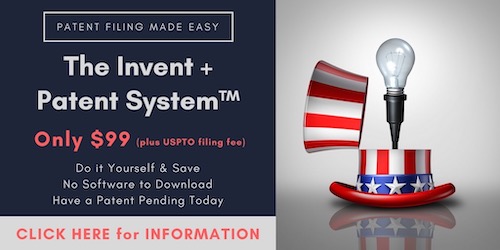Confidentiality Agreements
UPDATED: July 29, 2019
CLICK HERE for Free Sample Non-Disclosure (NDA) Agreements — This page contains several free sample confidentiality agreements (also known as non-disclosure agreements or simply an NDA) for you to use. You can select from two simple confidentiality agreements, a mutual non-disclosure agreement (NDA) and a standard confidentiality agreement. All agreements can be used royalty free and can be modified to meet your own unique circumstances.
If you are an inventor, please also visit our Invention to Patent 101 page, as well as the Inventors Information section of our blog, which contains basic information for both newbies and pros. Further, if you are new to Confidentiality Agreements (sometimes referred to as a NDA or Non-disclosure Agreement interchangeably), I recommend starting with What is a Trade Secret, which will give you some basic information regarding what can be protected. You may well be surprise how much information can and should be protected, but can only be considered a “trade secret” so long as you take reasonable steps to maintain secrecy. That is precisely where the Confidentiality Agreement, or NDA, comes into play.
The Confidentiality Agreement (or NDA) should be in place when you are talking to someone about your invention or otherwise disclosing sensitive information. In fact, it is best practice for the word “should” in the previous sentence to be interpreted as “must”. The only time you should consider it unnecessary to have a confidentiality agreement in place is when you are speaking with an attorney (including a patent attorney) or patent agent for the purpose of seeking legal advice. In the situation where you are speaking with an attorney or patent practitioner (i.e., patent attorney or patent agent) to seek legal assistance the law already imposes strict confidentiality requirements; requirements that are indeed far more stringent than any Confidentiality Agreement.
 For example, in the situation where you are seeking the services of a patent attorney or a patent agent it is unnecessary to first obtain a confidentiality agreement before you disclose information about your invention. Rules and regulations that apply to patent attorneys and patent agents requires that any confidential information provided must remain in the strictest of confidence, and in fact United States Patent Office regulations impose far more strict confidentiality requirements than any confidentiality agreement would or could. This is true even if you ultimately do hire the patent attorney or patent agent to represent you. Confidentiality rules and ethics rules require that patent attorneys and patent agents must maintain all communications in confidence even when they ultimately do not represent you. The key is that you have sought professional assistance of an attorney or agent and from that time forward all communications are privileged and must remain confidential. For more on this topic see: 37 C.F.R. 11.106.
For example, in the situation where you are seeking the services of a patent attorney or a patent agent it is unnecessary to first obtain a confidentiality agreement before you disclose information about your invention. Rules and regulations that apply to patent attorneys and patent agents requires that any confidential information provided must remain in the strictest of confidence, and in fact United States Patent Office regulations impose far more strict confidentiality requirements than any confidentiality agreement would or could. This is true even if you ultimately do hire the patent attorney or patent agent to represent you. Confidentiality rules and ethics rules require that patent attorneys and patent agents must maintain all communications in confidence even when they ultimately do not represent you. The key is that you have sought professional assistance of an attorney or agent and from that time forward all communications are privileged and must remain confidential. For more on this topic see: 37 C.F.R. 11.106.
You can verify that an individual is a patent attorney or patent agent by visiting the USPTO website at:
https://oedci.uspto.gov/OEDCI/
In all other cases a Confidentiality Agreement, or NDA, will save your idea or invention from being taken by others.
For more information about Confidentiality Agreements and related topics please see:

![[IPWatchdog Logo]](https://ipwatchdog.com/wp-content/themes/IPWatchdog%20-%202023/assets/images/temp/logo-small@2x.png)
![[[Advertisement]]](https://ipwatchdog.com/wp-content/uploads/2018/10/Enhance-1-IPWatchdog-Ad-2499x833-1.png)